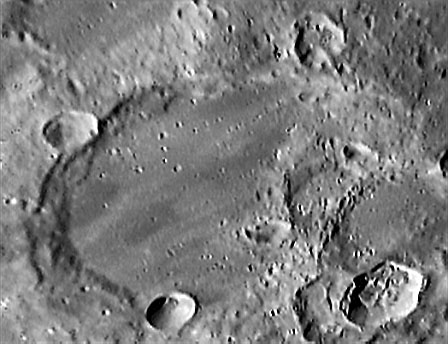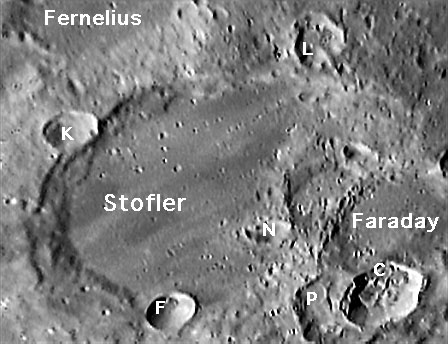September 2, 2004
Ray-Swept Stofler
Image Credit: Wes Higgins |
|
Ray-Swept Stofler Three-hundred fifty km east of Tycho is a crater which has seen some tough days. Stofler once was a 126 km wide Copernicus-like crater, probably about 4.5 km deep. Its still that wide, and softened relics of its terraces are visible, but the crater has been filled by 1.8 km of a light--hued smooth plains material that buried its central peak. But before the plains formed, other craters bombarded it. An old un-designated crater impacted on the floor of Stofler. Later that crater was cut in half by Faraday, which itself was hit by Stofler P, and then Faraday C (mouseover). At some point the covering of Stofler's floor occurred - probably after Faraday formed (lava or Orientale or Imbrium ejecta?) because that crater's rim seems slightly embayed by the floor material. The youngest crater to form on Stofler was Stofler F, a fresh 17.5 km wide, 2.8 km deep crater. Wes' image shows a classic "turned on a lath" inner wall for F, and two quite unusual hills on the edge of the crater floor. These hills are not central peaks - I don't know what they are. The last thing to happen to Stofler (except for a continuing rain of micro-meteorites) was its draping by bright ray material from Tycho about 810 m.y. ago.
Technical Details: Related Links: Yesterday's LPOD: Hundred Year Old Hevelius Tomorrow's LPOD: Snake in the Mare
|
Author & Editor: COMMENTS?Register, Log in, and join in the comments.
|





